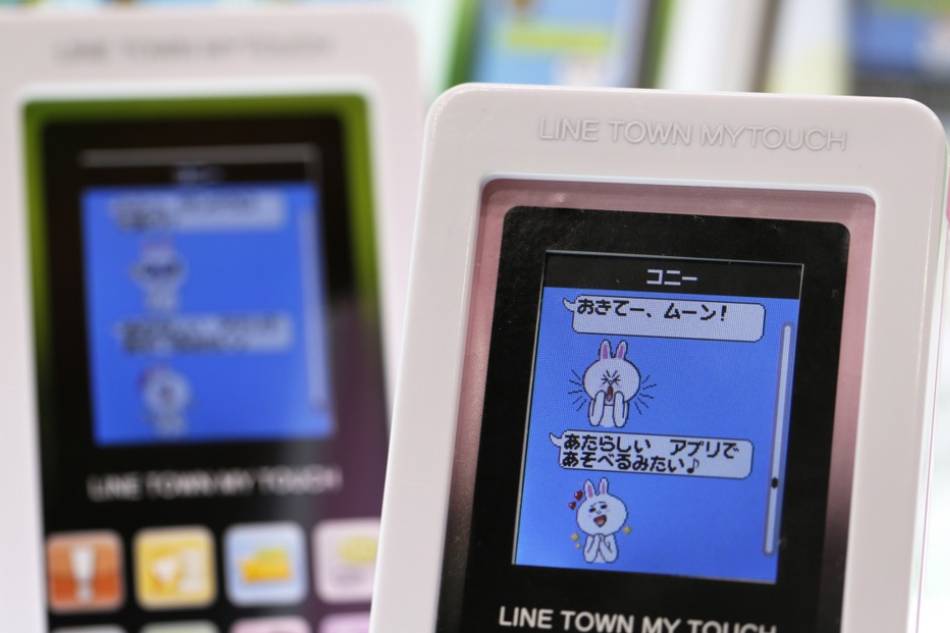Increased screen time from age 1 affects later development: study
ADVERTISEMENT

Welcome, Kapamilya! We use cookies to improve your browsing experience. Continuing to use this site means you agree to our use of cookies. Tell me more!
Increased screen time from age 1 affects later development: study
Kyodo News
Published Oct 30, 2023 01:18 PM PHT
TOKYO -- Increased television and DVD screen time from age 1 will negatively affect toddlers' later development, a recent study by a children's health research group shows in a medical journal.
TOKYO -- Increased television and DVD screen time from age 1 will negatively affect toddlers' later development, a recent study by a children's health research group shows in a medical journal.
A prior study in Canada had found the effects of screen time on children aged 2 to 5. The latest research reveals the impact on toddlers as young as 1 for the first time.
A prior study in Canada had found the effects of screen time on children aged 2 to 5. The latest research reveals the impact on toddlers as young as 1 for the first time.
Based on data from 57,980 children and mothers from a national birth cohort, the Japan Environment and Children's Study, the responses were collected from among five categories according to screen exposure time from none to over four hours.
Based on data from 57,980 children and mothers from a national birth cohort, the Japan Environment and Children's Study, the responses were collected from among five categories according to screen exposure time from none to over four hours.
Researchers from Chiba University and a national child health center in Japan assessed the development of problem-solving skills, personal and social skills, communication skills, gross motor skills like jumping and fine motor skills such as picking up objects.
Researchers from Chiba University and a national child health center in Japan assessed the development of problem-solving skills, personal and social skills, communication skills, gross motor skills like jumping and fine motor skills such as picking up objects.
ADVERTISEMENT
The study, published last month in the online edition of JAMA Pediatrics, a journal of the American Medical Association, found greater screen time for children aged 1 was associated with a higher risk of developmental delay at age 2 in the communication, problem-solving, and personal and social skills domains.
The study, published last month in the online edition of JAMA Pediatrics, a journal of the American Medical Association, found greater screen time for children aged 1 was associated with a higher risk of developmental delay at age 2 in the communication, problem-solving, and personal and social skills domains.
Regarding the risk of developmental delay at age 4, associations were identified in the communication and problem-solving domains.
Regarding the risk of developmental delay at age 4, associations were identified in the communication and problem-solving domains.
Children with higher scores in communication had shorter screen exposure time. Higher developmental performance was associated with the presence of an older sibling and frequent reading to the child, among others, according to the study.
Children with higher scores in communication had shorter screen exposure time. Higher developmental performance was associated with the presence of an older sibling and frequent reading to the child, among others, according to the study.
"I hope this study will help think about media exposure at home," said Midori Yamamoto, a member of the group and assistant professor at Chiba University's Center for Preventive Medical Sciences.
"I hope this study will help think about media exposure at home," said Midori Yamamoto, a member of the group and assistant professor at Chiba University's Center for Preventive Medical Sciences.
She hopes to look into the effects of smartphones in the future, as the latest study focuses on children born between 2011 and 2014 and does not reflect the device's impact.
She hopes to look into the effects of smartphones in the future, as the latest study focuses on children born between 2011 and 2014 and does not reflect the device's impact.
ADVERTISEMENT
Another group member, Hidetoshi Mezawa, a doctor at the National Center for Child Health and Development, said behind increased screen time are parents who are isolated from society.
Another group member, Hidetoshi Mezawa, a doctor at the National Center for Child Health and Development, said behind increased screen time are parents who are isolated from society.
"It's necessary for society as a whole to consider solutions," he said.
"It's necessary for society as a whole to consider solutions," he said.
==Kyodo
==Kyodo
ADVERTISEMENT
ADVERTISEMENT



